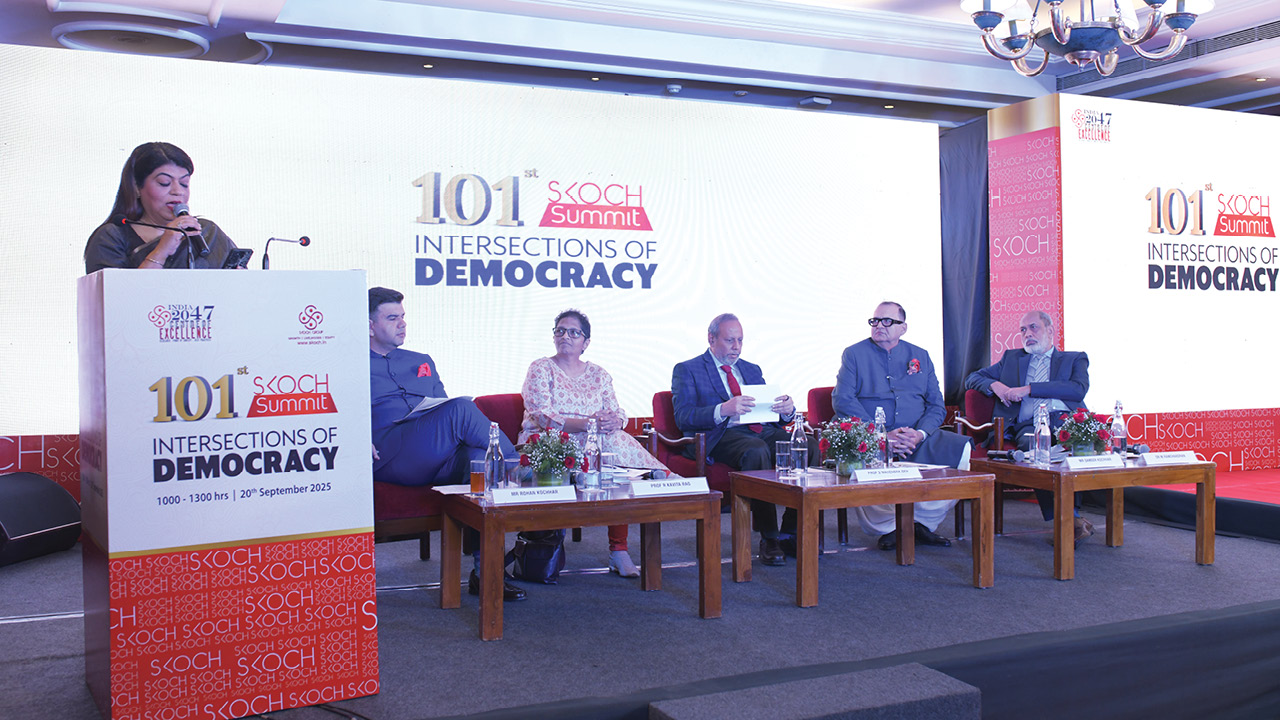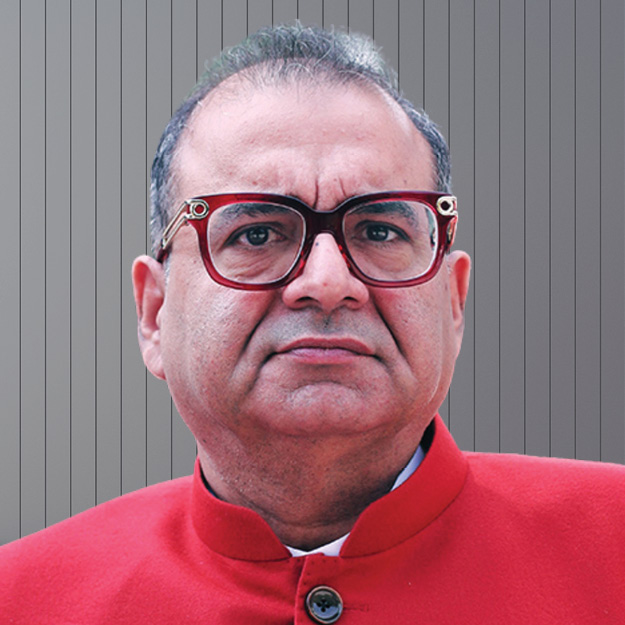Key Points*
- Celebrating Federalism – Democracy in India is a dynamic negotiation between the Centre, states, and local bodies, ensuring inclusive governance.
- Vision of Viksit Bharat – A developed India defined by high income ($30–40 trillion economy), per capita income of $18,000–26,000, eradication of extreme poverty, and reduced regional disparities.
- Inclusive Growth Priorities – Focus on universal access to healthcare, education, sanitation, digital infrastructure, and equitable development of aspirational districts.
- States as Key Drivers – State governments play a pivotal role in delivering Viksit Bharat, with the union of states forming the backbone of India’s progress.
- Federal Evolution – From command-and-control economics of the 1970s to liberalization in 1991, and further restructuring since 2015 with greater fiscal devolution and GST reforms.
- GST Council as a Model – The GST Council stands out as a best-practice institution for effective Centre–State collaboration, suggested as a template for other domains.
- Challenges in Centre–State Relations – Vertical imbalances in taxation powers, horizontal disparities in per capita income, and limited dialogue through existing intergovernmental institutions.
- Policy Recommendations – Make the Finance Commission semi-permanent, rationalize centrally sponsored schemes, and empower states to customize implementation to local needs.
- Institutional Strengthening – Proposals include setting up a National Fiscal Council, fortifying the Inter-State Council, and creating mission clusters around human capital, livelihoods, and infrastructure.
- Fiscal Discipline & Innovation – Encouraging performance-linked borrowing, transparent financial management, and modernization of public finance systems to build strong state capacity.
* This content is AI generated. It is suggested to read the full transcript for any furthur clarity.
Transcript
Namaskar and good morning. Welcome to this 101st Skoch Summit. It takes a very long journey to reach where we have reached today. And we have the privilege of people from all over the country being present here with us today. From honorable ministers from states to people from districts, from people from Panchayati Raj institutions. It's a very wide eclectic presence. But it's all of you together that make India work. So my opening remarks today is about federalism because the first conference that we're doing is on the subject of intersections of democracy. Democracy is an intersection. Democracy actually in a country like India is a negotiation. It's an ongoing negotiation between center and states and the local bodies. And only with this negotiation is what would deliver to us the dream of Viksit Bharat which we define as a country which has got high income, which is 30 to $40 trillion economy, per capita income of 18,000 to 26,000. There is no extreme poverty. It has been eradicated. And there are no regional disparities which have been eradicated through targeting aspirational districts, guaranteeing universal access to health, education, sanitation and digital infrastructure, and establishing global leadership and innovation, sustainability and governance reforms. Now how is all of this going to be delivered? It cannot be delivered without very active participation from the state governments. Because finally, India is a union of states and the sum of its parts has to be greater than the whole. So if you look at India's federal revolution, we started off with a control and command economy till the 70s through the Planning Commission. ’91 onwards, when the liberalization was ushered in nationally, states also got very active and they started, you know, very proactively addressing investments, doing development and so on and so forth. And that is how you saw the miracles that were Gujarat and Maharashtra.
They kind of arrived as industrial hubs. 2015 onwards again there has been significant federal restructuring exemplified by the 14th Finance Commission's devolution of 42% and the establishment of the GST Council. Now GST Council is a best practice as far as we are concerned in terms of effectively negotiating between center and the states. And I think that is something that needs to be replicated across many, many domains. If that is done, then it's a battle half won. So if you look at what are the principal challenges in center-state relations, first is the vertical imbalances. A lot of social sector expenditure is to be done by the states but their taxation authority is limited, more so after GST there are very few areas that they can tax. There are horizontal disparities. There are pronounced divergences in per capita income across states. There are centrally sponsored schemes which are very good. These are the schemes that are delivering. These are delivering where the states have failed. But there are other states where they have done well, so they are performing well there also. However, if there is some leeway available for them to structure them more in tune with their development priorities it is a desirable way forward. Intergovernmental institutions for this dialogue largely don't function currently. Other than the GST Council which is the only success example, Inter-State Council has been mostly dysfunctional and that there is a need to create more spaces for dialogue because only this dialogue is going to deliver Viksit Bharat. So what are my recommendations? Recommendations essentially are that if you look at the Finance Commission, could we perhaps look at the Finance Commission becoming a semi-permanent or permanent body? Could we rationalize the centrally sponsored schemes in the sense that could some of the well-performing states have a larger say in how a centrally sponsored scheme is to be implemented in these states? So the model there could be the GST Council model. While formulating the centrally sponsored scheme, could the states also be consulted extensively and customized to various needs? There is also need to do a National Fiscal Council. The CSS of course could also be divided thematically. Mission clusters such as Human Capital, Livelihoods and Infrastructure which will give a higher degree of focus. Institute, National Fiscal Council and Autonomous statutory entity tasked with monitoring macroeconomic fiscal indicators, evaluating policy ramifications on central-state equilibria and offering impartial arbitration and compliance evaluations. This is a difficult recommendation, but it is something that we would submit that if government could consider and if there is with some guardrails this can be done. Fortify the Inter-State Council mandate, quarterly convocations with dedicated committees addressing urbanization, climate adaptation, digital inclusion and fiscal governance. So these are some of the things that could be done. Public finance needs to be harnessed for enhancing state capacity so there could be performance-linked borrowing and incentives. For example 0.5% of GSDP contingent upon reforms benchmarks which is going to help everyone. Refining borrowing protocols which is augmenting transparency and scrutiny of off-budget liabilities and guarantees. There are quite a few of them in the states and modernization of public financial management to bolster state proficiencies in outcome-oriented budgeting, digital treasury operations and real-time expenditure monitoring. So these are my humble suggestions. Of course I am no expert in this subject. The experts on the subject are with me on the dais and this is only for their kind consideration that these are some of the things that the government may look at. With that I invite Professor Mahendra Dev to come and give his inaugural address.

